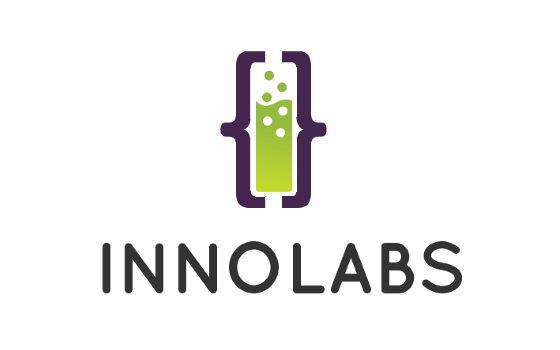 INNOLABS 1st Open Call for innovative projects in personalized healthcare will be open from the 15th of June until the 30th of September 2017. Up to 25 best ideas from SMEs will be selected to enrol into an Acceleration Programme where each team will obtain support worth up to 50,000€ (equity-free) per project, distributed as follows:
INNOLABS 1st Open Call for innovative projects in personalized healthcare will be open from the 15th of June until the 30th of September 2017. Up to 25 best ideas from SMEs will be selected to enrol into an Acceleration Programme where each team will obtain support worth up to 50,000€ (equity-free) per project, distributed as follows:
- 30,000€ direct cash funding.
- Up to 10,000€ as innovation vouchers to be spent in services provided by external providers validated by Consortium.
- Up to 10.000€ in additional services provided by consortium partners based on SMEs needs.
Further, up to 25 finalist projects will be selected and receive up to 10,000€ in innovation services per project; this includes:
- Up to 5,500€ as innovation vouchers to be spent in services provided by external providers validated by Consortium.
Up to 4.500€ in additional services provided by consortium partners based on SMEs needs.
The Acceleration Programme will start in December 2017, and during 9 months INNOLABS will provide financial support and offer expert knowledge.
Furthermore a 3 months Fast Lane Programme will be offered to 5 teams of the Open Call.
The INNOLABS acceleration program is non-residential; all collaboration with teams will be done remotely.
The 25 best projects in the ranking are named 'awarded'; the 25 runner ups (position 26-50) in the ranking are named 'finalists'.
The first Open Call, is open to smart health solutions based on combination of ICT, BIO, Health and Medicine sectors. Proposed solutions should solve or meet the needs of ageing populations in rural and urban areas.
For this first INNOLABS Open Call seeks proposals to address at least one of the following proposed challenges:
1. ICT and health - The challenge is to help ageing populations remain independent and active in their communities (especially rural and remote ones) with ICT-based assistive solutions. These solutions should be accessible to consumers (the silver economy) and institutional health care providers and promote participation of stakeholders in the care continuum. They also need to be interoperable and secure whether the solution is an mHealth or eHealth.
2. Biotech and health - As people age they become more susceptible to chronic diseases and co-morbidities (e.g. cancer and diabetes). The challenge is to use biotechnology to support an approach to care that is predictive, preventative and personalised. This encompasses diagnosis, prognosis, treatment options. In practical terms the benefits range from early detection of disease conditions, better informed and personalised clinical decisions in diagnosis and treatment and empowered patients with effective shared care plans.
3. Solutions generated by end-users need identification - We are seeing a shift from industry-driven products to ones that are more demand-driven by the end-user. This might involve the co-design of solutions as well as their testing. With this challenge, we are seeking solutions that builds on an original idea generated from (i) someone working within or (ii) a patient(s) treated by - a service along the health and social care continuum. In particular, we are interested in products and processes that are more affordable and less invasive.
Applicants need to engage one or more of these specific challenges in order to be an eligible candidate.
Application requirements
The requirements to participate in the INNOLABS Open Call process are as follows:- Teams will have to address the challenges of the Open Call.
- Teams must be composed of at least 2 legal entities from an EU or associate country
- Teams must be led by an SME.
- The proposed innovation project must include cross over between sectors namely ITC, BIO, Medical and target addressing listed Health challenges in the INNOLABS first open call.
- Extra points in the evaluation, if team represents legal entities from 2 different countries
- Extra points in the evaluation, if the team is composed by at least 2 SMEs.
- Extra points if the Project Leader has been awarded the EC Seal of Excellence in the 12 months preceding call launch.
In order to help participants to search for partners, a matchmaking portal will be available on the INNOLABS web page.
For further information and application forms, please visit:
https://www.innolabs.io/open-call.html
About INNOLABS
INNOLABS is looking for new cross-sectorial health solutions for personalized health. To achieve this purpose, INNOLABS will invest 3.75 Million EUR with the aim to foster collaboration, transfer of knowledge and opportunities among European SMEs for different countries and sectors in order to develop, improve and deliver disruptive technologies for personalized health.
More specifically, INNOLABS aims to support projects based on the combination of ICT, BIO, Health and Medical sectors for the benefit of ageing populations and rural areas that incorporate mHealth technologies.
INNOLABS main objective is that SMEs with mutually reinforcing competencies can be supported in view of creating new industrial value chains that foster the development of emerging industries in Europe. To this end, INNOLABS is specifically carrying on a large number of activities:
- 2 Contest Idea Events and associated Open Calls for team profile matching and competition. Best ideas will be funded and a specific 3-months fast innovation pipeline provided as opt in, on top of the normal acceleration program.
- 3 Hacktathons and 3 Bootcamps with SME patronage competitions. Direct prizes for best ideas.
- Focussed lectures, workshops, webinars and different event formats used and employed for achieving objectives.
- Innovation vouchers, prizes and other measures for direct support.
Starting on the 1st of January 2017, the project has a duration of 2.5 years and is supported by Horizon 2020, the EU Framework Program for Research and Innovation.